You are reading the TEETH newsletter, written and compiled by geological clock, Jim Rossignol, and tectonic projection, Marsh Davies. This is a newsletter about table-top role-playing games: our own—that we’re publishing over here and also here —as well as interviews, links, and general noodling. Want us to see your work? Get in touch!
Hello, you
LINKS!
Marsh Davies
Hello, you.
I had been putting off writing this because I was hoping I would have something very special to share, but it hasn’t quite come to pass, so we’ll have to save that for a future edition.
Instead we have a collection of links which we suspect you are going to find vital in the coming months. More importantly we — I*, not Marsh too, because that would be weird — also have a lengthy chat with Marsh, whose efforts as an author and illustrator are the reasons TEETH exists at all. We hold our beards most thoughtfully and wax about the solace to be found in being erased from history by the immensity of geological time, the formative childhood event of pretending to be an absurdly flamboyant duke, as well as the way we swing on RPG morality, and whether digital games took the wrong lesson from tabletop RPGs.
Also: it was lovely to notice via Twitter that Wandering Monster played Night Of The Hogmen over the weekend! But at the same time we have to be very clear that we’re largely withdrawing from the Twittersphere, for quite obvious reasons.
Rebuilding all the TTRPG communities that relied on the bird site has been, and will continue to be, a splintering and fragmentary effort that has been choked by a number of factors, and Marsh and I are mostly on Bluesky for the social media now. That is, of course, absolutely no use for people who can’t get on Bluesky, but I have faith that will change in the coming months. The community is growing rapidly and with any luck we hope to see you all on there before too long.
[Tangentially, but relatedly, I have taking any excuse at all to share this “Internet Of Beefs” article. There are some incredible sentences in this analysis of our Very Online world.]
More pertinently to this mailing list, we’ll be throwing the net of this newsletter a little wider in coming months, not least because we will have new stuff to share, and also — perhaps more significantly — because our day job concerns will be less punishing. Having more time for RPG stuff will be a blessing for us all.
Much, much more soon,
-jim
—
LINKS!
Thing Of The Week is Daniel’s Sell’s twin wizard-tower dungeon book, Slate & Chalcedony, which in addition to be an exquisite name for a thing and is one of the best presented indie-RPG books I have encountered of late, and there’s been a lot of competition in the department! Look at that. It arrived just yesterday.
Thing of the month, however is Interzone 295. It’s been absolutely years, decades in fact, since I subscribed to a short story magazine, and I really do not regret doing so again now. It’s just lovely and it’s packed with superb shorts that are all illustrated by superb artists.
There’s an expansion coming for the excellent solo-journalling bounty hunter game Notorious, which we talked about earlier in the year.
This list of names from Old Weird Scotland is proof that TEETH is a documentary of sorts, and not just total fantasy invented by Marsh and myself.
I don’t know how I have not previously encountered the fantasy maps of Marc Moureau. Holy shit!
Look at these Jacob Hendrik Pierneef woodcuts.
Our kid Kieron Gillen has been doing the rounds, appearing on a podcast about video games hosted by the most handsome man, Simon Parkin, and also over on Wyrd Science to talk about TTRPGs. It goes about as you might expect: “Well, people say Orson Welles career went wrong when he did the Transformers movie. And I say the opposite. That was a suitable climax to a full-on career.”
Research this month has been packed, but highlights includes Sattler’s Panorama of Salzburg, and also The Wonderfull Discoverie of Witches in the Countie of Lancaster, which, it turns out, was not “wonderfull” at all for the witches in question. The famous story of the Pendle Witches in 1612 is particularly sad because the extraordinarily-named Alizon Device even seems to have been convinced of her own powers, an attitude which led to nothing good at all.
I can’t remember/can’t be bothered to trawl the backlog to check, but if we haven’t mentioned that Evil Hat are publishing Riley Daniel’s fantastic Forged In The Dark adaptation of Victorian Martian invasion, As The Sun Forever Sets, then we really should have done. Extremely excited about this! This is a the very top of the Forged stuff to be thralled in anticipation of.
—
An Interview With Marsh Davies
So indulge us, because here’s the thing: while you are doubtless by-and-large used to hearing most of these updates and newsletters and things in my authorial voice*, TEETH as an ongoing project, and as a Promethean act of creation, must be identified with the voice and creative energies of another: my friend and handsomely devilish co-creator, Marsh Davies.
*that is to say me, one of the internet’s rare Jim Rossignols.
Marsh is the very progenitor of TEETH. While it’s fair to say that it was our collaborative effort that produced the vital organs of the book — we both laboured to sew together its arms, legs, some of the intestines, and to attach some of its shoes — Marsh provided the lightning. He conceived and wrote the best parts. He gave it life. The list of English names? Marsh. The cursed pies? Marsh. The encounter tables and mutations and lunatic weather conditions? All Marsh. And what about the ideas for Night Of The Hogmen, or Blood Cotillion, or our unexpected adventure, Stranger & Stranger? You know who.
But there is more to this. It was Marsh, who, locked away in his storm-raked tower, not only authored, but illustrated and designed the entire book. A labour of month-upon-month! Yes, he laid out every page, from cover to stern. He drew the maps and floorplans, came up with the best names and created all the threads of narrative that weave the book together into a wondrous whole. And while I dragged in some raw pages, dripping wet from the cold night outside, he edited them all and threw away the maggoty bits into the fire.
I have been, in a very real sense, Igor to Marsh’s Dr Frankenstein. Marsh Davies is a writer, designer, and illustrator of just exceptional accomplishment, and he stands, like legend-made-flesh, over the misty valleys that we intend to explore in the future.
But despite all this, questions remain. Questions of identity, motivation, and inspiration.
While some of you may know Marsh’s writing from his tenure on Edge magazine and PCGamer, or his incredible contributions to little-known internet journal Rock, Paper, Shotgun, or his stint as Head of Creative Writing at Minecraft developers Mojang, or perhaps you recognise his pleasantly-throated voice on the wholesome and erudite popular podcast The Crate And Crowbar, we still must ask:
JR: Marsh, when the tales are told, long after this time of tech-bros and influencers passes into legend, how will you be known or explained to children?
MD: You know, one of my favourite things I've read in recent years was a splenetic article trashing the idea of the anthropocene - a newly coined term for a geological epoch in which human activity has indelibly marked the planet. The contention of the article was that this was abject bollocks of a wildly vain kind - geology is a field of almost unfathomably enormous time-scales, in which dating a rock produces error bars that would engulf the span of human history 50 times over. If humanity blew itself up tomorrow, which seems not unlikely, all evidence of our existence would be completely erased by the epic abrasive churn of rock, ice and water. At the timescale in which lake beds can become mountains, nothing would remain of us: "Not plastic birthday balloons, not piles of denuded chicken bones, not Charlton Heston shaking his fist at some littoral colossus."
What about dinosaurs, you go, don't we have plenty of evidence for them? No - we have evidence for very few dinosaurs given that they existed across a period of 179,500,000 years. There are many gaping holes, each comprising tens of millions of years, in which we have no archaeological record whatsoever. Our entire industrial civilisation would disappear completely into one of those holes. Indeed, if some breed of dinosaurs before us had achieved space-flight and iPads and needlessly complicated tax systems before wiping themselves out, we might never know. Even the satellites they'd plopped into geo-stationary orbit would have eventually wandered off into the darkness - as will ours.
Anyway, I find the idea of complete and total erasure very calming, and I want for nothing from the future but to be wholly obliviated by a glacier.
JR: But Sir, this is an RPG newsletter. Tell me about the RPGs of your youth. What did they mean? How did they write you?
MD: My first encounter with any roleplaying game was LARPing at some sort of summer school. It was a kind of murder mystery evening, set in a fantasy inn: we all pulled characters out of a hat, each with an objective to fulfil across the course of the evening - someone to kill, something to steal, that sort of thing - and the web of our backstories and intents told some larger story, if players managed to piece it together without being merked.
I was 8 or 9 at the time, the youngest kid there by several years, and not especially outgoing, but the character I was given was an absurdly flamboyant duke. Somehow, the atmosphere and structure of the event gave me the permission and the confidence to really go hard in-character, in a way which was, in retrospect, extraordinarily annoying. But, for reasons unknown, nobody bog-washed me and I've carried that euphoric memory in my back pocket for the rest of my life - that certain circumstances, people and social rules can unlock an exhilarating collective creativity that is normally forbidden, especially for adults.
After that, the first RPG I got into was Warhammer Fantasy Roleplay. I don't really remember the system, probably because I never learnt it properly, because once again it was more of a way of gaining permission to extend imaginative play into later childhood - but also, because I was GM, it introduced me to creating an entire world for my friends to play in. I'm sure it was a very bad, stupid world, but the idea that the GM is a curator of a collaborative fiction and custodian of the player's fun, and not just someone who tells people what dice to roll, has remained important to me. For me, RPG rules continue to be a framework to help make something larger, but as soon as they're an obstacle rather than an aid to that goal, I'm happy for the GM to quietly break them. Is that how you feel?
JR: I think there’s a degree to which you must play within the spirit of the rules, if not to letter, if you are going to avoid breaking the game and not experiencing it as intended. That’s why I think making clear what the GM is supposed to be doing and what the players are supposed to be doing is so vital. That said, we have often house-ruled things as we’ve played, and ignored things that haven’t worked. Or, misunderstood rules and got them wrong, and had a great time anyway.
MD: I was talking to a chum about Baldur's Gate 3 - which is great, incidentally - and I said that its recreation of D&D was a bit weird because, while it's a great expression of D&D's rules, the game frequently employs them without consideration of whether it will instantly kill you and force a reload, which is something completely alien to D&D - because what GM would allow players to stumble into a difficult spike and wipe the party? My friend said, nah, that's exactly how his GM approaches their games of D&D - a stickler for the rules, come what may. Oh, you turned left? Too bad, campaign over! That sounds absolutely horrible to me! A bit of friction or fear is good, but if the dice effectively shut down your collaborative storytelling, then that's antithetical to the entire experience - or at least the experience I personally want.
JR: And then, just under 10 years ago, when we hardly knew each other, we began to play D&D.
MD: That was a terrific time! I was a tiefling cleric who'd betrayed his god in order to resurrect another, and become a wide-eyed, frothing zealot - an adherent of Jack of Rags, no less, a creation of yours who has found their way into TEETH as well.
I don't think I fully enjoy roleplay unless my character is deeply awful in one way or another. My character in our Blades campaign was a rightly-disgraced militiaman and angry, self-hating drunk; in Symbaroum I was a disgusting goblin who couldn't stop his hands from strangling people. This is peculiar because when I play videogame RPGs I feel compelled to Lawful Good my way through every dialogue choice. I can't account for this. Do you gravitate towards particular kinds of morality? Is it different when you play videogames?
JR: I think it’s always a systems-driven thing for me. If the systems are interesting in a certain direction for me, then I will go that way. Good or bad are, in the repercussion-free universes of the computer game, a matter of which is less boring. I was playing the board game Scythe and I was unable to not take the mission cards which reduced your popularity, because they were more interesting! Despite that being critical to your score. Who designed it like that?! (Perhaps I just got unlucky.) But anyway there’s something else here, isn’t there. One of the best bits of the book is your guide to the reality of living in the 18th century. Are you not, in fact A HISTORIAN? Tell me about your historianness.
MD: I am in no way a real historian! I'm a fraud! My only claim to academic historianitude is that I did a masters in medieval literature. I ended up studying Arthurian myth (in part because my grandad had been obsessed with it), using its many different stories to chart changing medieval beliefs - like how cool it is with God to murder a shitty king. Given the number of shitty kings who got murdered (not enough, imo), it's a delicate topic for medieval writers, who needed to make sure that they themselves remained unmurdered by whoever then claimed the throne.
So, despite being a literature course, my approach to it was more historical than literary, really. But the inverse was also true: coming to medievalism through its literature helped me realise what excited me about history in general, which was not the grim procession of dates and facts we'd been drilled on in school, but a way to unlock the passions, obsessions, experiences, sights, smells, thoughts, dreams and terrors of lives long since lived.
JR: You should go to the Jorvik Viking Centre.
MD: Haha! I have! And the memory of its potent odour has lingered with me throughout my life. Meanwhile, I was never interested in the 18th century growing up because the way it was taught to me was all about enhanced crop yields and advancements in textile manufacturing. It was a weird, bloodless angle to take upon a period that bore witness to the most seismic change in the way people lived their daily lives since the development of agrarian society, the thrill and terror of a world completely and forever altered, the wonder of the new and the tragedy of those chewed up in the name of progress, the ubiquitous cruelty of empire and the rare heroism of those who challenged it. And discovering this stuff in later life is what has made me an avid consumer of the kind of history I care about: the kind that has mud on its boots.
JR: One-hundred percent agree on this one. How did younger me miss what an extraordinary period of history this was? Just rampant change beyond imagining.
MD: I'm sure that the very partial version we imbibed at school was due to a national unwillingness to accept fault - not just in terms of Britain's imperial aspirations, which were glossed as a sort of inevitability, divorced from any moral argument whatsoever - but also in the way that power operated within Britain itself, with its class stratification and a parasitic ruling elite whose undeserving, inbred families can be traced all the way back to the Domesday book. Yet the way things were can't be challenged in classrooms, because it might make us challenge the way things are: so history in school ends up as this passive-voice list of events, rather than this thrilling thing that threads together all the people who've ever lived.
Sorry, you asked me about history and instead I've basically told you why the Coronation annoyed me so much. But the two are kind of related. And to TTRPG design, too: I think a lot of what I like about history is holding the big picture in your mind - all the connections, the context, the grand sweeping motion of it - while imagining what it'd be like to walk through it, taking in the sights and textures of a place and time. And connecting those two scales of human experience is what a lot of TTRPG worldbuilding is.
JR: Let’s get into TEETH itself. You wrote, illustrated, designed (both in the sense of game design and the actual layout of the pages) and edited the entire book, as well as the three huge adventures that we produced beforehand. And this was your first go at making RPG books! What have you learned?
MD: Adobe’s InDesign is a fucker. There's that. Also: making a book is literally a million times harder than releasing a PDF, and had I realised that at the start I think I would have laid down and instantly decomposed. It was only my immense ignorance that got us to where we are now!
JR: Hooray!
MD: In terms of the game design, I think we got better and better at thinking about the rules and how to express them - though this was maybe outstripped by the increasing complexity of the rules we were expressing with each subsequent release. Having arrived at the end of it all, I'm not convinced I'd make the same decision again to scale up from the stripped-back rules of our one-shots, to the full-fat rules of TEETH proper - which is comparable in complexity to Blades in the Dark. In fact, I'm not even sure we made a conscious decision; I think we just assumed that was the goal and didn't question it until it was too late. But all that additional crunchy detail, from having more granular Actions and Attributes and so forth - I think (hope) it all works, but I'm not sure that's what I want from TTRPGs at this point. What about you? Will you gravitate to looser, lighter rulesets in the future, do you think?
JR: I don’t actually know. I think what I am finding most interesting are the rulesets which are light, but also have very substantial influence on how the game is experienced and why. Sort of emergent rulesets, which set up the starting parameters in such a powerful way that they define the experience perfectly. I am thinking of Trophy, of course. And there are rules-y experiences which we have got a lot out of, and I think of the 2D20 campaign I am playing with Gillen and Gardiner at the moment, and in a different but ultimately comparable way the AGON campaign which turned us into Greek Legends in mere moments. They have both been a huge influence on me... But I meander! Why do you think RPGs are so interesting right now? Are they more interesting right now?
MD: In a sense they're as interesting as they ever were, in that the limiting factor has always been the people playing them, but certainly there's just a wild diversification of settings, rulesets and even purposes to RPGs. Obviously D&D is still the big daddy, and you might accuse it of being one of the least interesting out of the box, in that its setting trades in very established fantasy tropes and its mechanics tend toward a relatively constrained spectrum of behaviours, rigidly defined through dice rolls, with a focus on walloping things. But even that, with its use as a framework for performance on Youtube and podcasts, has become looser and weirder than ever before, while promoting it as something that young, attractive people might do, rather than being solely the provence of lamentable, now-ancient nerds such as ourselves.
And partly because it has been rehabilitated and thus absorbed the attention of a lot of young, plastic brains, there is this ever-widening spectrum of acceptable play, from structured to unstructured, from party game to board game, where the social creative space can be turned and tweaked and twisted to explore different ideas. Itch.io's library of one-shots is just an extraordinarily fertile space to experiment.
JR: I think we have both realised that TTRPGs have much to trade with the digital games we have made careers working on. What are your thoughts on that matter?
MD: For a long time I think videogames have taken the wrong lessons from TTRPGs. The very fact that RPG has become a by-word in digital games for a certain kind of granular stats-based advancement system demonstrates a kind of myopia. Not that I dislike granular stats-based advancement systems, but to me the value of TTRPGs is broader than that - the way a GM can integrate story threads within an environment is a very applicable skill, for example; the way you can design systems that reinforce theme, that impress upon players the stressors and factors that shape the world and the characters in it. The infinite freedom of outcome is a cool thing about TTRPGs, but I also think that's an obsession that videogames have taken up at the cost of other things the TTRPG had to offer: being able to pick between three different conversation options isn't as important to me as making a single option feel like a true expression of the character I'm embodying. That's roleplaying!
You interviewed Gareth Damian Martin a while back, who made the TTRPG-inspired videogame Citizen Sleeper — soon to be an actual TTRPG as well — and that prunes from TTRPGs exactly the things it needs and does not allow itself to be distracted by the rest: everything works towards the goal of evoking a particular role. And the players can shape that role, and change its course, but the game's power comes from how it uses its systems to echo the narrative pressures that inform the player-character's identity. It's a masterwork.
I'm not sure we managed anything as high-minded with TEETH, but we do have more fart jokes!
JR: God, we really do.
—

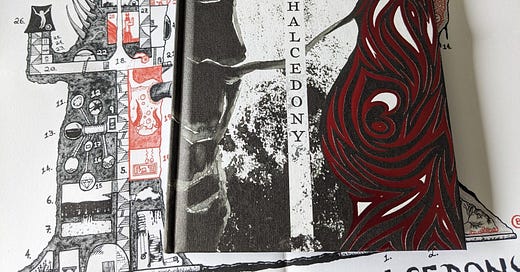



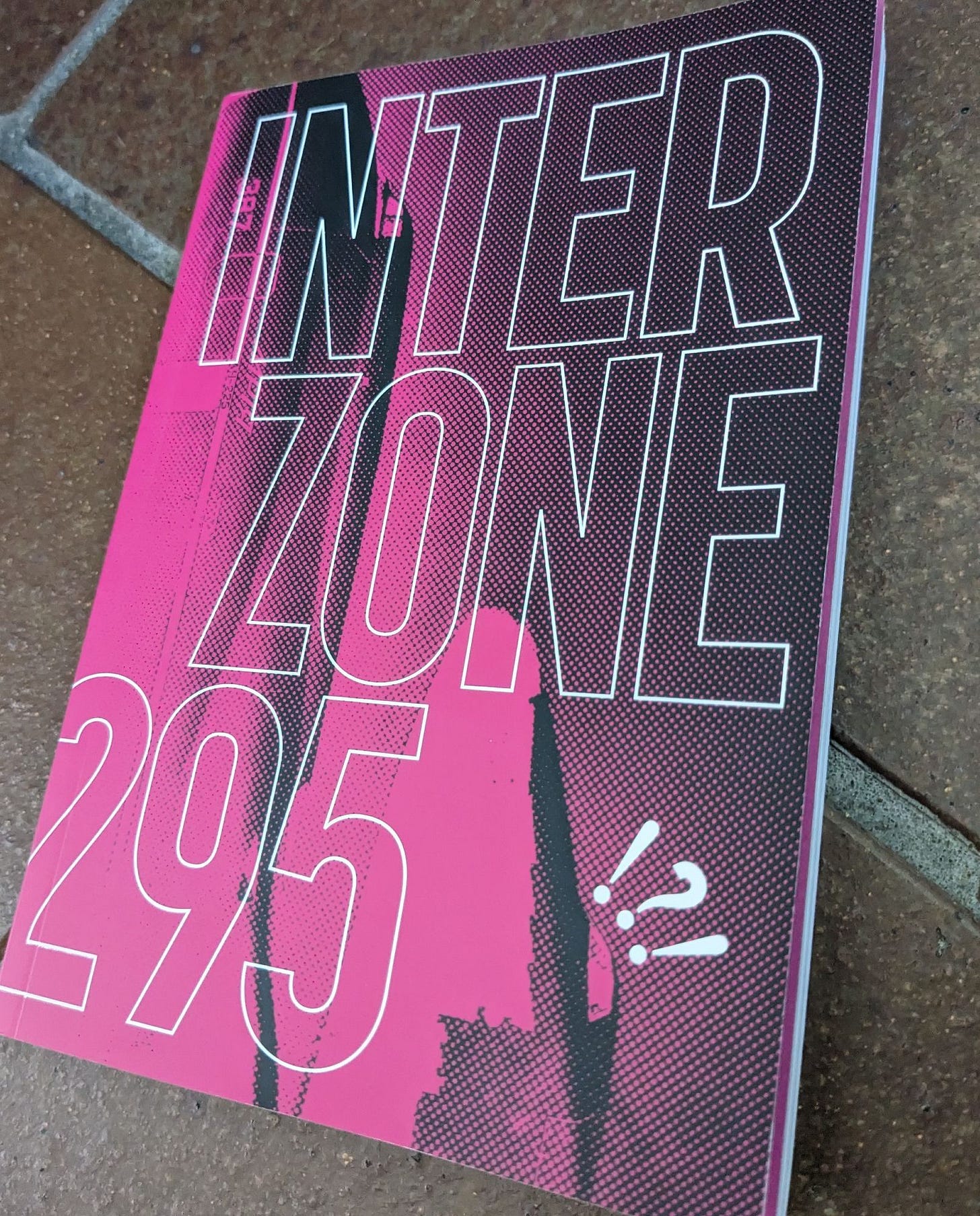
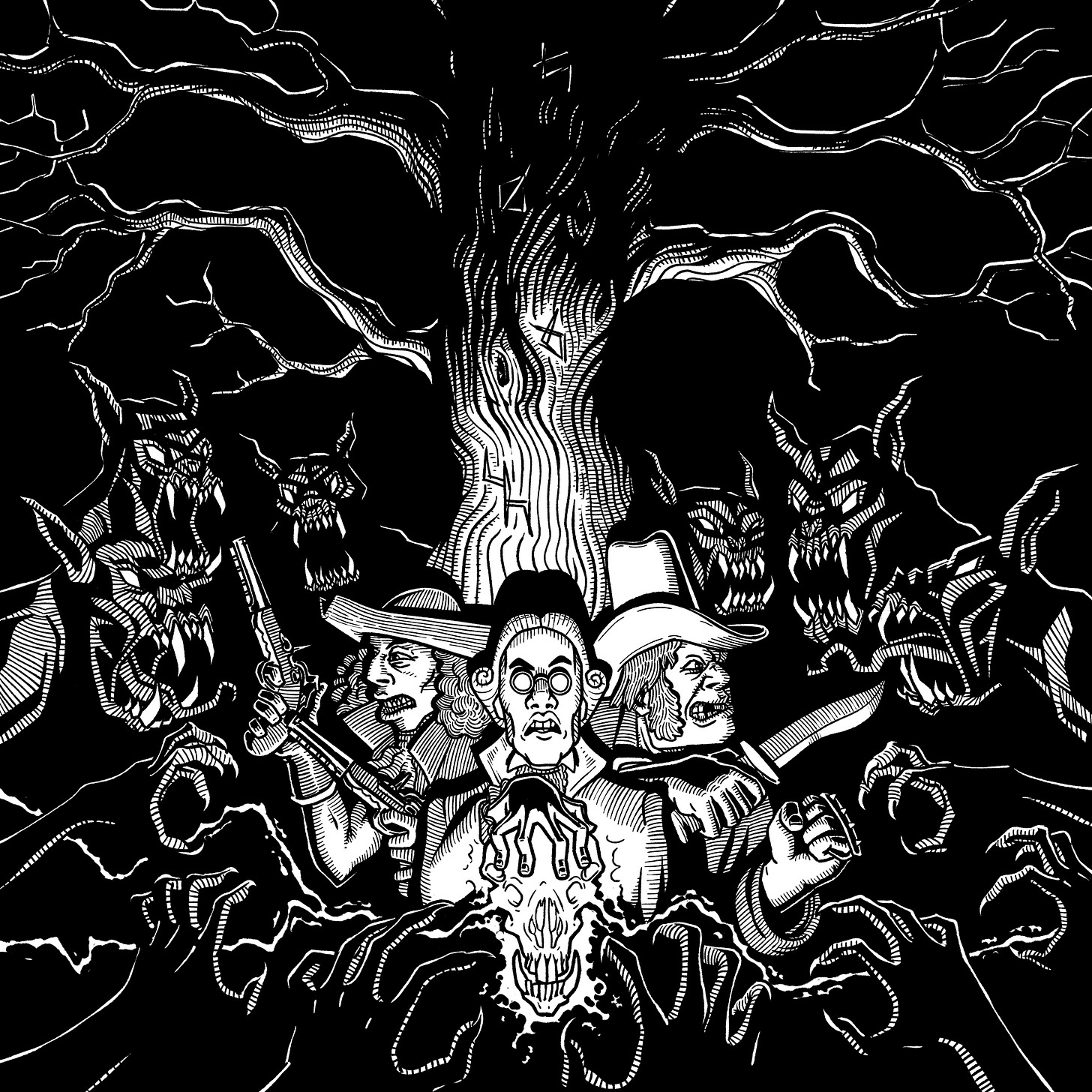
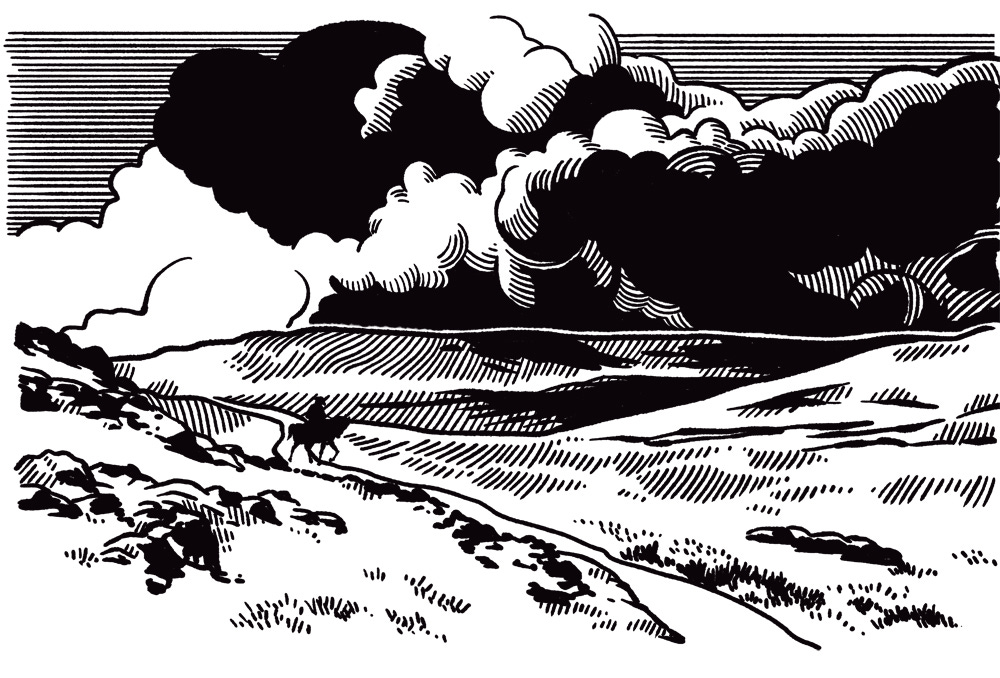
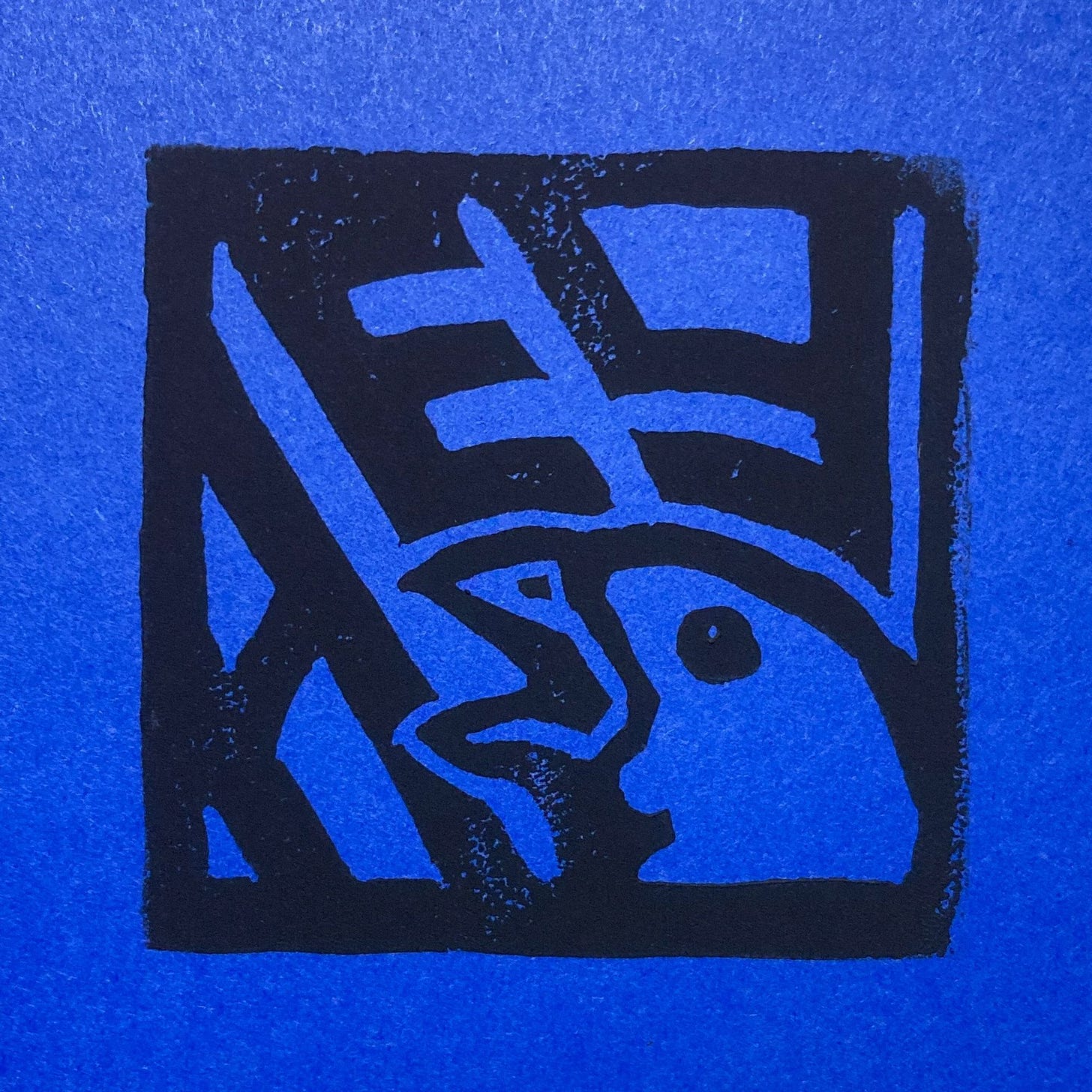
I’ve had this tab open in my browser for months after it was linked from somewhere (can’t remember where, maybe Gillen’s newsletter, or possibly the C&C discord). Finally got around to reading it, and just wanted to share in the InDesign pain. It’s such an awful piece of software. I was so relieved when Affinity Publisher came out and I moved everything there straight away. I’ve not used it for anything with more pages than a small booklet though.